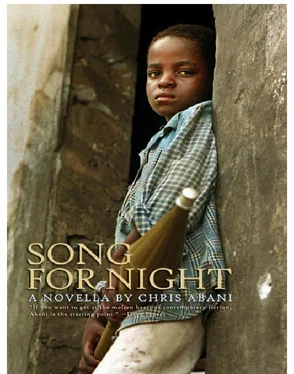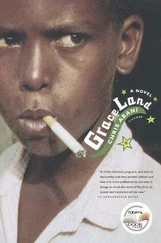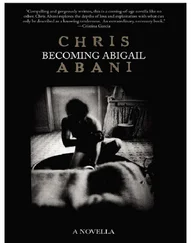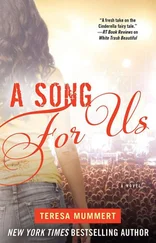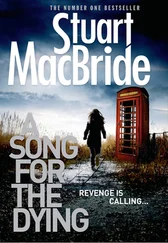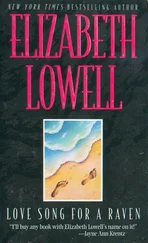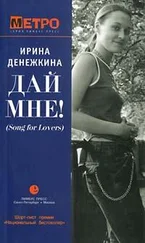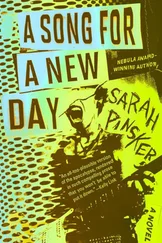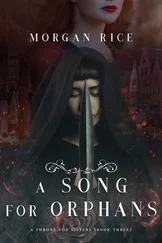“You’re right,” I say. “I need to find my platoon. I am their leader, you know.”
He smiles. “You look like a young general.”
“Major,” I correct, rubbing my eyes and coming up on one elbow. It is dark and I stare up at the stars pearling across the sky. I have lost all sense of time and don’t remember night coming upon us. It seems like just a moment ago I was standing in broad daylight in a field of dead men.
“Your journey is almost over,” he says gently. “You will need a boat.”
I sit up and watch him push a canoe into the river. Everything comes back to this river, I think. Maybe Grandfather was right, there is no escaping its flow. As I approach the water, my hair stands on end and I hesitate. I can’t do it. I can’t row through the dead again. Not in the dark.
“Come on,” he says again. Then reading my mind again, he adds: “You have all the light you need inside you.”
It sounds like something Grandfather would have said. I don’t believe him, but having no other choice I get in gingerly and push off, scything the water with the oars. I travel silently, disturbed only by the swish of the paddle. After a while, I pull the oars in, wrap my arms around myself, and settle back down to sleep.
I am still drifting downriver when I wake up. It is daylight. Stiff and sore, I look around. The thick forest has given way to large plains bordering each side. I wish I had some coffee; strong, sweet, and black. I gather phlegm and spit into the water.
The plains are man-made. Stumps point rudely where trees have been cut back. In some places, whole ghost forests hug the banks, trees half cut, dry, silver, and twisted. It has a tortured beauty. Before the war, the government gave grants to farmers on the plains to encourage and develop sheep farming. The amount of the grant was determined by the number of sheep each farmer had. People began to inflate the numbers of their sheep. To justify it, they began to annex part of the forest, cutting the trees back to develop more grazing land. But then the government twigged something was wrong and began to conduct inspections. To beat the inspectors, the farmers borrowed each other’s sheep and drove them from field to field, always one step ahead of the inspectors. Pretty ingenious, I think; if it weren’t so tragic. Now that the few hundred sheep have been eaten, all that’s left is this barren forest, and a few abandoned structures, built like American ranches. I spit again. This was never really about farming at all. It was about a lifestyle. If peace ever comes, I hope it makes us wiser.
The rest of the trip passes in mental silence. A few hours later, I bring the canoe to a halt with a bump. I am back at the edge of the forest. This fucking river and this fucking forest, I think. I need to get home.
Right there on the bank, on the edge of the river, is an old fishing village. The houses are empty, roofs fallen in from neglect or from bombs, I can’t tell which, but it’s all the same, everything here is caused by the war. I sigh and pull the boat ashore, and hide it under some raffia from a fallen roof. I wonder who used to live here. So far, most of my stops have coincided with something that happened before. But I don’t remember this village, or why I have been brought here.
There is a small lime tree, no bigger than a bush, right by the river. It is part of a row of stunted lime trees no doubt planted by the fishermen, the fruit used to clean and cure all manner of seafood. Plucking some, I crouch and throw one at a pot I see sitting on a cold hearth outside a hut. The pot falls over with a startled lid clatter, spilling rice which marches in an uneven column like termites. This excites some chickens scratching close to the forest edge. They dash over and peck merrily at the rice. The explosion I am expecting doesn’t come. Next I lob another green grenade at a spilt basket. There is the crunch of a melon exposing its red innards. No explosion, which means no booby-traps. I stand up and walk toward the village. I am not worried about mines. If there were any, the animals would have either all died or left the village.
Methodically I begin to ransack the huts, looking for anything of value. Somewhere along the way I lost the bag of food I took from the stash in the forest clearing. The odd thing is, I don’t remember when or how, and it is curious that I haven’t come across another stash, but even odder is that I don’t seem to care. Even as I work, I am disturbed by this invasion of other people’s lives. In the sand by my feet are some black-and-white photographs of a family. I bend and pick one up. The mother, stern and well made up, stares stonily at the camera. The father has a sheepish grin. There is a baby, mouth open in a happy gurgle. Embarrassed, I drop it.
I find some palm oil, matches, salt, and spices. I stuff them into a raffia bag and stand, the bag hanging from one shoulder, my gun slung across the other, the bayonet, disconnected, tied to my boot. I light a cigarette, for the first time noticing the spent shell casings littering the floor like peanut husks. I look around me. There is a hill rising above everything in the distance. Probably the last part of the range I left earlier. Something that has been niggling at the back of my mind for days suddenly becomes crystal — I haven’t heard the background rumble of mortar and shell fire for a while. What does it mean? I stub out my cigarette and head off.
I hack a path through the bush with a stolen machete, walking for hours, stopping to rest only once, to harvest some yams from an abandoned farm. It is late afternoon before I come upon the base of the hill. I climb to its flat top which spreads out like a green tablecloth spotted with warm yellow daisies and the blood of poppies, collapsing in a tired heap with an exclamation of pent-up breath.
I lie heaving gently in the backwash of the setting sun, all mauve and pink pastels. A valley dances misty-eyed way below, hiding the village in a cleft in the earth, a fold, sprouting a thick tuft of greenery, humping ever slightly like a pudendum. I light another cigarette from my never-ending pack and inhale deeply, the harsh smell cracking the beauty which reminds me of my childhood; of the first gulp of air after I surfaced from my first time underwater for a few minutes, beneath Grandfather’s alert watch. I wanted to take it all into me and hold it there, indefinitely, teeth sinking in startled gasps into its fudge sweetness, and yet it burned with a pain that brought tears to my eyes.
As night falls again, I jerk back from the fire in which I am roasting yams, howling from my burns as I haul one out from the hot coals and onto a big green leaf. I cut it into pieces with my bayonet and the heat steams up from the chunks, misting the dark in soft white clouds. I thaw some palm oil by the fire and crush salty herbs into it. I eat well, and later I drink the sweet palm wine that I liberated from a tapper’s gourd tied to a palm tree trunk when I was digging for the yam. The vanilla-scented liquid trickles down and relaxes aching muscles, soothing away aggression and the metallic knotted tension of living on the edge of death. Leaning back and lighting a cigarette, I think about the ghost soldiers and Peter’s magic. What does it all mean? I know this though: Grandfather used to say that the closer we are to death, the easier our facility for seeing ghosts becomes.
Shelter Is Hands Protecting the Head
The lost manual would call for shelter, so I hunt across the hilltop until I come to a rock formation. There is a gap in the side. This is not a cave, but the space underneath two rocks, like the air pocket from a careless fold, is big enough for me to shelter in. It is not the leader’s bunker, but then what is?
Читать дальше
